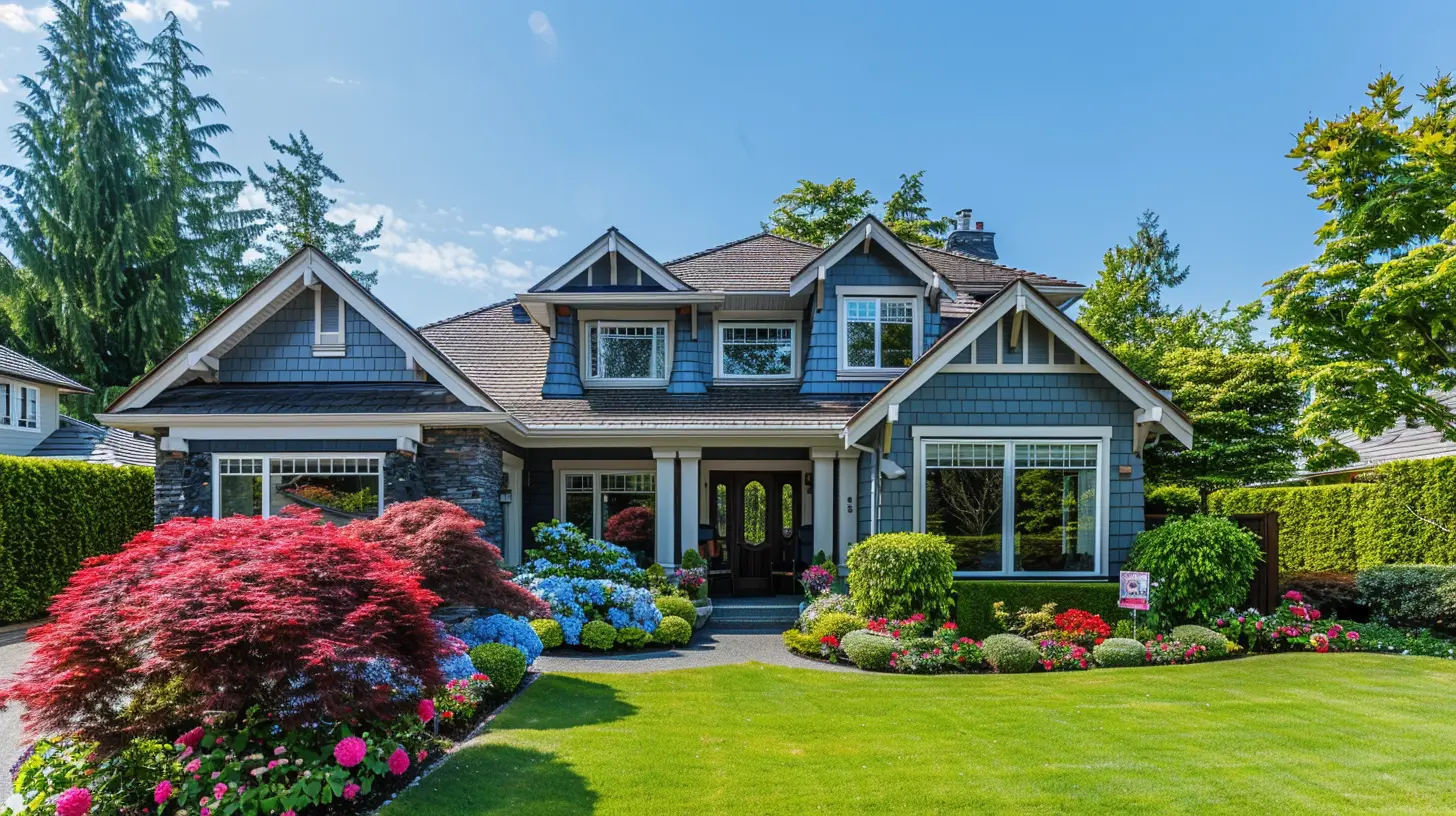1 April 2025
Selling your home can be both an exciting and nerve-wracking experience. While you may be focusing on getting the best selling price, there’s another crucial factor to consider—capital gains tax. If you're unfamiliar with how it works, don’t worry! By the end of this article, you'll have a clear understanding of capital gains tax, how it affects your home sale, and ways to minimize or even eliminate it. 
What Is Capital Gains Tax?
In simple terms, capital gains tax (CGT) is the tax you may owe on the profit made from selling a capital asset—like your home. It’s essentially the government’s way of taking a slice of the pie when you make money from an asset’s increased value.But here’s the good news: Not every home sale results in a capital gains tax. Certain exemptions and strategies can help reduce or even eliminate your tax liability. Let's break it down. 
When Does Capital Gains Tax Apply to Home Sales?
Not every home sale triggers capital gains tax. The tax only applies if:- You sell your home for more than you originally paid for it (your capital gain).
- You don’t qualify for exemptions, like the Primary Residence Exclusion (more on that later).
- The home was not your primary residence for a required period.
If you meet specific criteria, you may be able to avoid or reduce your tax burden significantly. Let’s look at how. 
How to Calculate Capital Gains on a Home Sale
Before worrying about taxes, you first need to determine your capital gains. Here’s a simple formula:Capital Gain = Selling Price - (Purchase Price + Eligible Expenses and Improvements)
Let’s break it down:
- Selling Price – The price at which you sell the home.
- Purchase Price – The amount you originally paid for it.
- Eligible Expenses and Improvements – Certain home improvements and selling costs (like agent commissions, closing costs, and major renovations) can be deducted from your gain.
Example Calculation:
- Purchased home: $250,000- Selling price: $450,000
- Eligible expenses (renovations, realtor fees, etc.): $50,000
- Capital gain: $450,000 - ($250,000 + $50,000) = $150,000
So, in this example, you have a $150,000 capital gain. The next question is—how much of this is taxable? 
The Capital Gains Tax Exclusion for Homeowners
The IRS offers a capital gains tax exclusion that can help many homeowners avoid taxes when selling their homes. This falls under the Section 121 Exclusion of the tax code, also known as the Primary Residence Exclusion.How Much Can You Exclude?
- Single Homeowners: Can exclude up to $250,000 of capital gains.- Married Couples Filing Jointly: Can exclude up to $500,000 of capital gains.
Using the previous scenario:
- If you're single, you exclude $250,000—your $150,000 capital gain is tax-free!
- If you're married, you exclude $500,000—which means a much higher buffer before you owe taxes.
How to Qualify for This Exclusion
To qualify, you must meet the ownership and use test, which means:1. You must have owned the home for at least two years in the last five years before selling.
2. You must have used the home as your primary residence for at least two out of the last five years.
Simple enough, right? But what if you don’t qualify for the full exclusion? Let’s look at other ways to reduce your tax liability.
Ways to Reduce or Avoid Capital Gains Tax
1. Live in the Home for at Least Two Years
If you've owned the home but haven’t lived in it for two years, consider waiting before selling. Meeting the Primary Residence Exclusion requirements can save you thousands in taxes.2. Track and Deduct Home Improvements
Major improvements—like adding a new roof, remodeling a kitchen, or upgrading plumbing—can increase your cost basis, reducing taxable capital gains.- What Qualifies? Renovations, additions, landscaping, and structural improvements.
- What Doesn’t? Repairs and maintenance (like painting or fixing leaks).
3. Use a 1031 Exchange (For Investment Properties)
If the home you’re selling is an investment property, you can defer capital gains tax by using a 1031 exchange—which allows you to reinvest the proceeds into another property without paying taxes immediately.4. Sell in a Year When Your Income Is Lower
Capital gains tax rates depend on your income. If you expect a dip in income (like retirement or job change), selling during that period might reduce your tax rate.5. Check for Partial Exclusion Exceptions
Even if you don’t meet the full ownership and use test, you might still qualify for a partial exclusion due to:- Job relocation
- Health conditions
- Unforeseen circumstances (like natural disasters)
What Are the Capital Gains Tax Rates?
If your gain exceeds the exclusion limit or you don’t qualify for an exemption, you’ll owe taxes based on capital gains tax brackets.2024 Long-Term Capital Gains Tax Rates
| Income Bracket (Single) | Income Bracket (Married, Filing Jointly) | Capital Gains Tax Rate ||------------------------|--------------------------------|-----------------|
| Up to $44,625 | Up to $89,250 | 0% |
| $44,626 - $492,300 | $89,251 - $553,850 | 15% |
| Over $492,300 | Over $553,850 | 20% |
- If you owned the home for a year or less before selling, you’ll be taxed at your ordinary income tax rate (which can be higher).
- If you held the home for more than a year, you'll pay the lower, more favorable long-term capital gains tax rate.
Frequently Asked Questions
1. Can I Avoid Capital Gains Tax Completely on My Home Sale?
Yes! If you qualify for the primary residence exclusion ($250,000 for singles, $500,000 for married) and your capital gain is below that threshold, you won’t owe a dime in taxes.2. Do I Have to Report the Sale on My Tax Return?
If your capital gain is fully excluded, you don’t need to report it. However, if part of it is taxable, you must file IRS Form 8949 and Schedule D with your tax return.3. Does Capital Gains Tax Apply to Inherited Homes?
No, inherited homes get a step-up in basis, meaning the home's value is reset to its market value at the time of inheritance. When you sell, you only owe taxes on gains above that updated value.Final Thoughts
Capital gains tax sounds scary, but with the right strategies and knowledge, it’s often possible to reduce or eliminate the tax burden when selling your home. By taking advantage of exclusions, deductions, and tax-friendly selling strategies, you can keep more of your hard-earned profit.Planning to sell your home soon? Make sure you understand your tax implications—because no one likes unexpected tax surprises!


